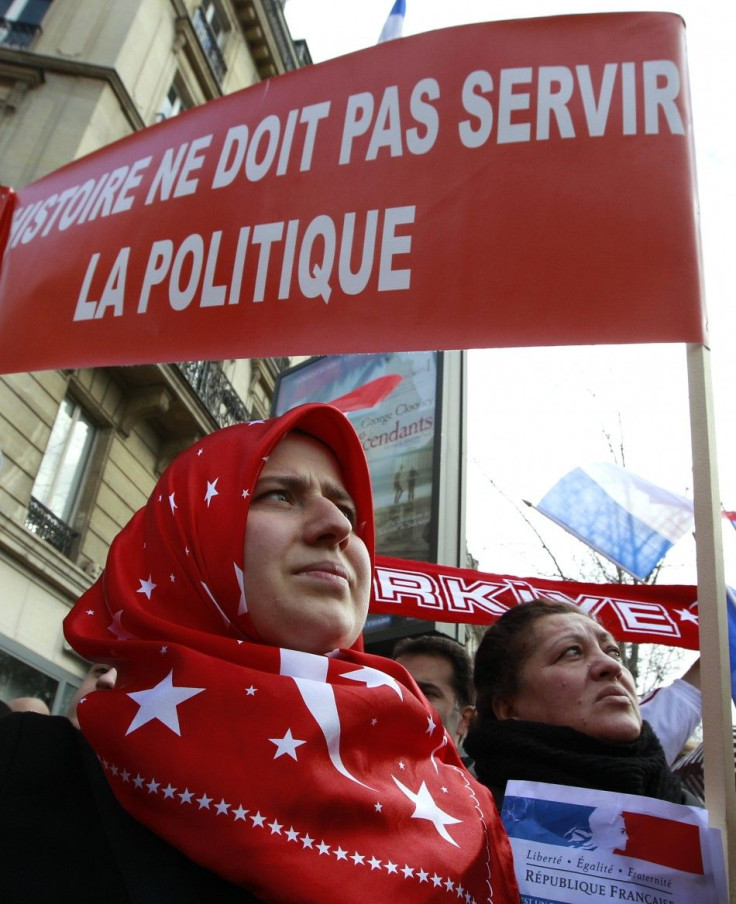France’s Opportunity: Showing Turkey that Free Speech is Life Itself
Opinion

A year ago, Nedim Sener -- a journalist who has spent nearly 20 years exposing government corruption in Turkey -- was investigating an obscure terrorist network that Turkish prosecutors maintain was plotting to overthrow the government. He is accused of playing a part in the plot. Journalist Ahmet Sik was writing a yet-to-be published book on the growing influence of the Gulen movement infiltrating the Turkish police force.
The fate of the two leading journalists is now set to be decided in court.
There are currently nearly 100 journalists in prison in Turkey. The government argues they are being held on charges of conspiring with terrorists, not because of their writings. The Council of Europe Commissioner for Human Rights, Thomas Hammarberg, soundly rejects the claim. Turkey has a vastly higher rate of journalists behind bars compared to European countries, he said -- perhaps the most in the world.
Critical writings are considered as terrorist propaganda. This is very wrong, Hammarberg said.
The argument that journalists are not in prison on the grounds of their writings but because of membership in an organization... brings us back to the definition of 'terrorism.' The [relationship] of journalists with terrorism cannot be verified. The impression that journalists are being imprisoned due to their writings is being confirmed when you analyze the evidence shown.
There is nothing quite so beautiful as when two apparent opposites -- though more alike than imagined -- collide, highlighting the absurdity of both of them. If you are lucky and/or patient enough, that time eventually comes.
For Turkey, the moment is here. Quite guilty at home for squelching citizens' voices, Turkey has found itself outraged that another country -- namely France -- would try to do the same. Oh, hello, kettle? This is Turkey. You're black.
The journalists' trial coincides with the scheduled debate (and possible vote) on a bill in the French Senate that would criminalize a very specific topic of discussion. The bill, passed by the lower house of Parliament last month, makes it illegal to deny the Armenian genocide, and would leave guilty parties facing yearlong imprisonment and a 45,000 euro fine.
Turkey is quite livid over the bill, understandably, as it disputes with most historians' views that the killing of 1.5 million Armenians by the Ottoman Turks during World War I was the 20th century's first genocide. It maintains that only roughly 500,000 Armenians were killed (and many Turks, too) because of a tumultuous disintegration of the empire.
Turkey has suspended military, economic and political ties with France, and if the French Senate approves the bill, Turkey has promised harsher sanctions and more bluster.
Timothy Garton Ash -- Professor of European Studies at the University of Oxford and Isaiah Berlin Professorial Fellow at St. Antony's College, Oxford -- wrote for the Los Angeles Times: The question is not whether the atrocities committed against the Armenians by the Ottoman Empire were terrible, or whether they should be acknowledged in Turkish and European memory. They were and they should be. The question is: Should it be a crime under the law of France, or other countries, to dispute whether those terrible events constituted a genocide, a term used in international law? And is the French Parliament equipped and entitled to set itself up as a tribunal on world history, handing down verdicts on the past conduct of other nations? The answer: no and no.
And he is right. And he is also quite correct when he said the Senate should reject the bill in the name of free speech, the freedom of historical inquiry and Article 11 of France's 1789 Declaration of the Rights of Man and Citizen -- because the free communication of ideas and opinions is one of the most precious rights.
Here France has an opportunity to lead by example, to show Turkey that in a democratic country, the individual is of the upmost import. After all, a bunch of individuals comprise the lot you govern. And if the people can't make their voices heard, then how do you carry out the will of the people you are elected to serve?
While it may be puerile to deny genocide, at least freedom of speech allows ignorance to be advertised -- and eventually addressed.
There's a long history of suppression in any place that was once a monarchy, especially one that overturned their ruling class as bloodily and violently as France. It helped lay down the fundamental groundwork for modern revolutions that led to representative democracy. So it's quite preposterous that it would even consider this law.
And if Sener and Sik were living in a country whose ideals mirrored those of democratic France in its infancy, their work would be judged in the court of public opinion -- not law.
© Copyright IBTimes 2025. All rights reserved.





















